
There’s no denying that probiotics are a ~buzzy~ food. And for good reason: They support digestion, keep you regular, and promote overall health.
And while there are so many probiotics to choose from these days (kimchi! kombucha!), don’t forget about good ol’ yogurt. “I’m all about the kombucha-on-tap lifestyle, but yogurt still holds a special place in my heart,” says Kelli McGrane R.D.
In order to be a good source of probiotics, look for yogurts that say “live active cultures” on the label, she says. “It’s also important to check out the amount of sugar in your yogurt since sugar can damage your gut health,” says McGrane.
When browsing the yogurt aisle at the grocery store, reach for probiotic yogurt brands with less than 15 grams of sugar per serving and that “active culture” label to really reap those gut health rewards.
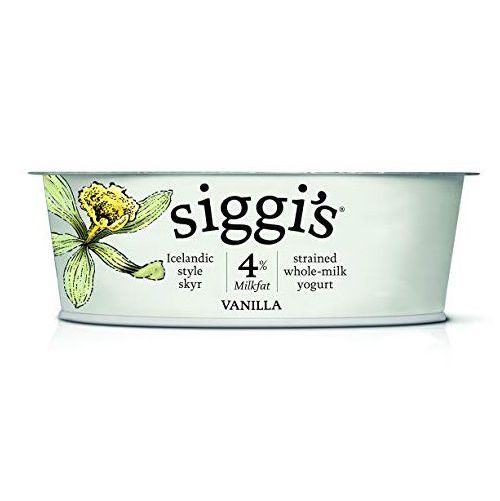
1.Siggi’s Icelandic Yogurt
“Siggis is a Skyr yogurt that originated from Iceland, and it’s creamier and thicker than Greek yogurt,” says Leigh Tracy, R.D. “It’s also low in added sugar and contains live active bacteria to help promote gut health.”
Per serving: 130 calories, 4.5g fat (3g saturated), 11g carbs, 60mg sodium, 0g fiber, 12 g protein, 8g sugar.
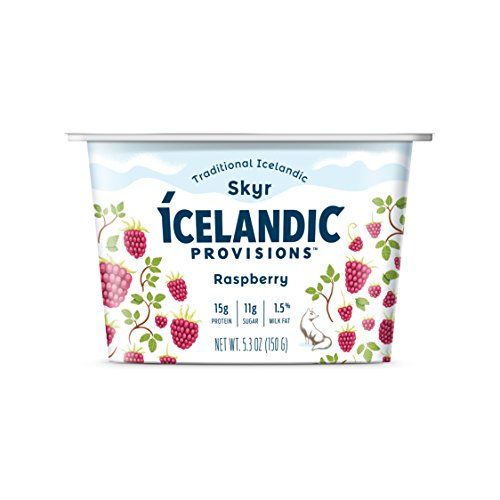
2. Icelandic Provisions Yogurt
This is McGrane’s fave Icelandic yogurt because it’s a rich source of protein and has a creamy texture. Try it in raspberry, plain, or vanilla, among other flavors.
Per serving: 130 calories, 2g fat (1g saturated), 15g carbs, 65mg sodium, 0g fiber, 15 g protein, 8g sugar.
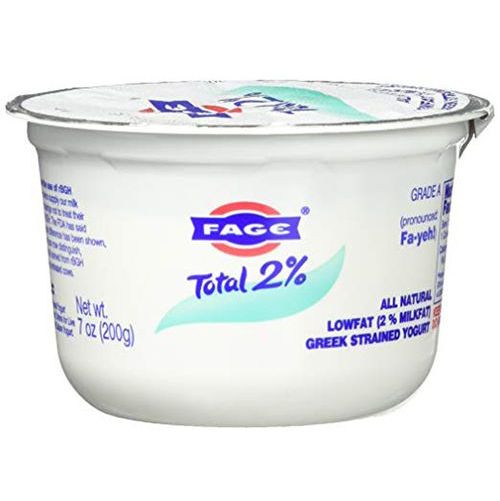
3. Fage Total Greek Yogurt
“Greek yogurt contains more protein than regular yogurt and has a thicker texture,” says McGrane. But as with regular yogurt, be sure to check labels for sugar content and live active cultures.
Per serving: 150 calories, 4g fat (3g saturated), 8g carbs, 65mg sodium, 0g fiber, 20g protein, 8g sugar.
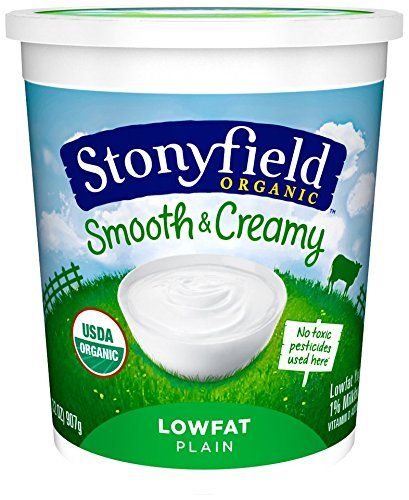
4. Stonyfield Farm Organic Yogurt
“Both [Stonyfield’s] regular yogurt and Greek varieties are non-GMO, free of growth hormones, and contain excellent sources of live active cultures,” says McGrane. They also offer soy yogurt, which is a good source of probiotics for anyone who needs a dairy-free option. “As with most yogurts, stick with original or vanilla to keep the sugar content on the lower side,” she says.
Per serving: 120 calories, 2g fat (1.5g saturated), 15g carbs, 140mg sodium, 0g fiber, 10g protein, 15g sugar.
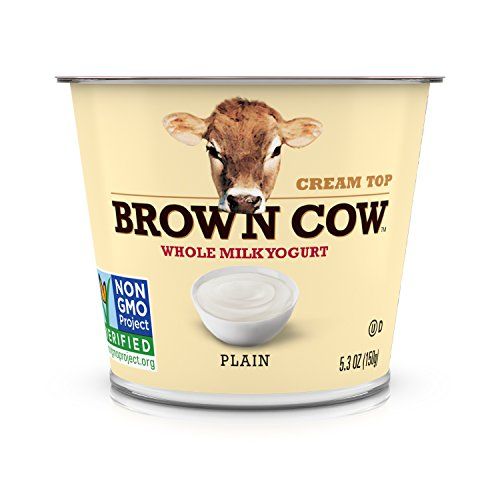
5. Brown Cow Whole Milk Yogurt
“Traditional, unstrained yogurt tends to get overshadowed by Greek yogurt, but it can be just as healthy,” says McGrane. While traditional yogurt often has less protein than Greek, the calcium content is generally higher, she says. And this brand has those essential probiotic cultures.
Per serving: 130 calories, 7g fat (4.5g saturated), 9g carbs, 95mg sodium, 0g fiber, 6g protein, 9g sugar.
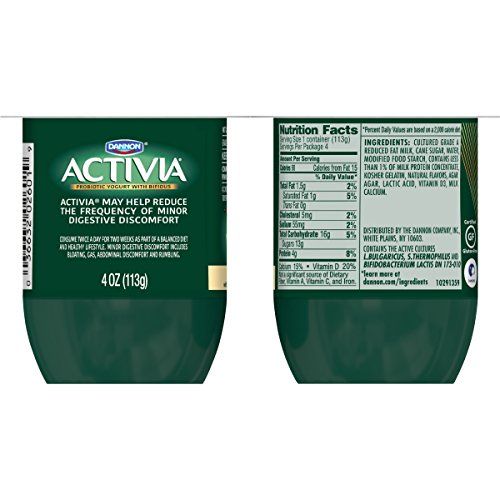
6. Dannon Activia Yogurt
Dannon Activia comes in tons of flavors, like strawberry, raspberry, blueberry, and peach. It’s also packed with probiotics to keep you regular, says McGrane.
Per serving: 90 calories, 1.5g fat (1g saturated), 16g carbs, 55mg sodium, 0g fiber, 4g protein, 13g sugar.
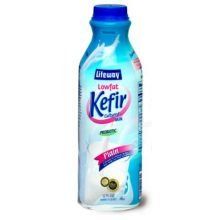
7. Lifeway Probiotic Yogurt
Kefir is a fermented milk drink (similar to those drinkable yogurts you had as a kid) but a bit thinner in consistency. “Kefir is a good source of protein and calcium, as well as vitamin B12 and phosphorus,” says McGrane. “Depending on the brand, kefir is often a richer source of probiotic strains than traditional yogurt, too.” Lifeway is her go-to brand to fit that bill.
Per serving: 110 calories, 2g fat (1.5g saturated), 12g carbs, 125mg sodium, 0g fiber, 11g protein, 12g sugar.
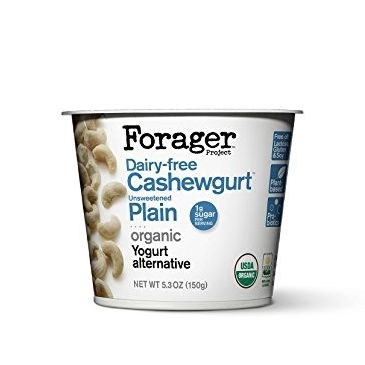
8. Forager Project Dairy-Free Cashewgurt
“Cashew yogurt is a milk-alternative yogurt with a thinner consistency, more like traditional strained yogurt,” says McGrane. “I recommend Forager Organic Cashewgurt; the plain version contains just three grams of sugar, and the vanilla flavor only has 12 grams.” Pro tip: They’re both great in smoothies.
Per serving: 100 calories, 7g fat (1.5g saturated), 9g carbs, 5mg sodium, 1g fiber, 3g protein, 1g sugar.
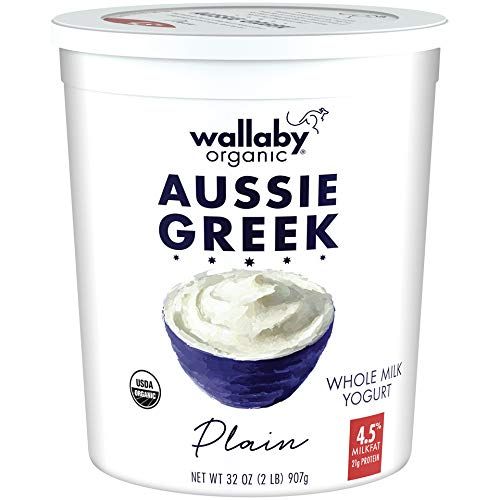
9. Wallaby Organic Greek Yogurt
“Australian yogurt is perfect for those who want a texture somewhere between traditional and Greek yogurt,” says McGrane. “But many of those yogurts tend to be overly sweet, so stick with the plain flavors, and add your own honey or fresh fruit instead.” She recommends Wallaby for its taste and probiotic cultures.
Per serving: 220 calories, 11g fat (7g saturated), 10g carbs, 90mg sodium, 0g fiber, 21g protein, 7g sugar.
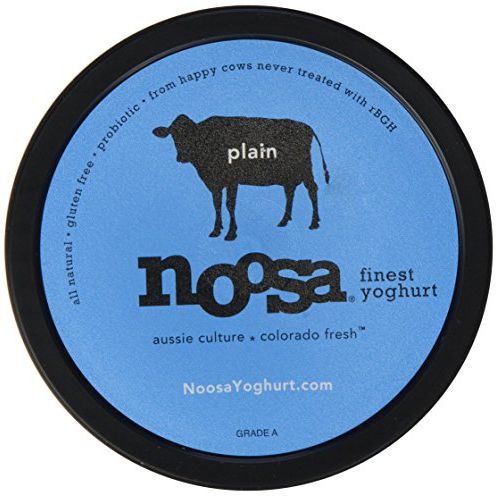
10. Noosa Yoghurt
Another Australian yogurt pick from McGrane, Noosa has a nice texture and a solid dose of fats and gut-regulating bacteria. You can get it in plain and add fruit and nuts, or choose a flavor like blueberry or honey.
Per serving: 240 calories, 14g fat (9g saturated), 13g carbs, 160mg sodium, 0g fiber, 17g protein, 13g sugar.
Source: Read Full Article